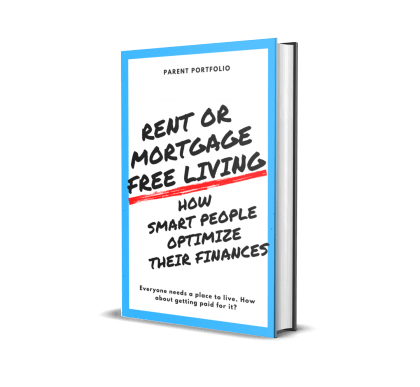19 Common Credit Errors That Can Wreck Your Financial Stability

Credit cards, when used responsibly, can enhance your financial life, allowing you to build your credit score, earn rewards, and more. Unfortunately, if you’re not careful and make credit card mistakes, using a credit card can have the opposite effect on your financial life. Here are some of the most common credit card mistakes to avoid, including some specific travel credit card mistakes to watch out for.
Credit Card Mistakes to Avoid
When using your credit card, here are some credit mistakes you could be making — and how you can avoid them by following some basic credit card rules.
Making Late Payments
Payment history is one of the most significant factors in determining your credit score. The more payments you miss, the more your credit score could go down, and it could take a fair amount of time to repair your credit. A late or missed payment can stay on your credit report for up to seven years (unless you can prove it was a credit report mistake).
How to avoid it: Set up automatic payments, or set reminders to help yourself remember when your credit card payment is due.
Making Only Minimum Payments Monthly
While making minimum payments is important to avoid incurring late fees, it won’t allow you to avoid interest charges. In fact, by only making the minimum payment, you’ll end up paying a high amount of interest (assuming you’re not using a card in its 0% introductory period). You also risk getting further into debt if you keep using your credit card, and it could take years to pay off your balance in full.
How to avoid it: Budget carefully so you can pay off more than the minimum amount due or ideally, the entire balance off each month.
Misunderstanding Credit Card Interest
Interest is a key part of what a credit card is, but the way credit card interest is charged can be confusing. A credit card can have a few different annual percentage rates (APR) depending on the type of transaction, including on purchases, cash advances, and balance transfers.
The bottom line: To avoid incurring interest on new credit card purchases, make sure to pay off your balance in full each month. You’ll owe interest on any amount you carry over.
How to avoid it: Check your credit card agreement to understand how interest is charged, and aim to pay off your balance in full to avoid incurring interest.
Ignoring Your Credit Card Agreement
Credit card agreements contain important details like fees, your credit limit, and other important terms you’ll benefit from knowing. Ignoring credit card terms could lead to nasty surprises, like fees you didn’t anticipate paying.
How to avoid it: Set aside time to read your credit card agreement, and contact your credit card issuer if you have any questions about how credit cards work.
Neglecting Your Monthly Statement
It might seem like a slog, but reading your monthly statement is important to staying on top of your credit card account. For starters, it includes a plethora of important information, such as your statement balance, the amount of your minimum payment owed, and your payment due date. Plus, regularly reviewing your credit card statement can ensure you quickly spot any signs of fraud.
How to avoid it: Set reminders to look at your monthly statement to see how much you owe, and make sure to dispute any transactions you didn’t approve.
Getting Close to Your Credit Limit
Your credit limit is the amount that you can charge your card. If you get close to hitting your limit, it could hurt your credit score because you’ll have a higher credit utilization ratio. This ratio compares your balance to your available credit, and the higher it is, the more adversely it could affect your score.
How to avoid it: Monitor your balance to ensure you’re not close to your limit — ideally, you’re only using up to 30% of what’s available to you.
Applying for Multiple Credit Cards at Once
Each time you apply for a new credit card, lenders will conduct a hard inquiry, which tends to temporarily lower your credit score. While this dip might not make a huge difference, applying for multiple accounts could cause lenders to take pause, and possibly give them the wrong impression as to why you want so many new cards.
How to avoid it: Get pre-approved for a credit card before applying to see your chances of getting approved before submitting a full application.
Applying Without Comparing Credit Cards
There are many benefits and features that come with credit cards, and without comparing them, you may not end up opening a card that’s not the right fit. By shopping around and exploring different credit card rewards, you’ll ensure you understand your options and get the most competitive choice available to you.
How to avoid it: Take the time to think about the features you want the most from a credit card and do some research to narrow down your choices before applying.
Canceling Your Card on a Whim
Canceling a credit card could mean the issuer will require you to pay off your entire balance with interest. Plus, it could affect your credit utilization ratio since it will lower your overall credit limit. It also could shorten the length of your credit history, which is another factor used when calculating credit scores.
How to avoid it: Consider the consequences of canceling your credit card, and make sure to pay off the entire balance before you do so.
Not Reporting Lost or Stolen Credit Cards Instantly
The longer you go without reporting a lost or stolen credit card, the more likely you’ll be responsible for fraudulent changes that show up. Some credit card companies waive all fraudulent charges (or up to $50) as long as you’re quick to report.
How to avoid it: As soon as you notice your card missing, report it to your credit card company, and then continue to monitor your statements for any fraudulent charges.
Loaning Your Credit Card
When you give your credit card to someone else to use, you’re still responsible for the charges made on it. If the person you lent your credit card to doesn’t pay you back, then you’re stuck with the bill. The same applies with an authorized user on a credit card — you’re the one ultimately responsible for paying even if you didn’t make the charges yourself.
How to avoid it: Don’t let anyone borrow your card, and if you do, ask them to pay you upfront for the changes they intend to make.
Travel Credit Card Mistakes to Avoid
In addition to the mistakes above, take care to avoid these particular mistakes if you have a travel rewards credit card.
Overspending
To earn welcome or bonus offers, credit card companies typically require you to spend a minimum amount within a certain period of time. If you don’t plan ahead properly, you could end up making unnecessary purchases and racking up charges you can’t afford to pay off.
How to avoid it: Have a plan for how you’ll meet the minimum spending requirements, such as by timing a big purchase you need to make with opening a new card.
Underspending
On the opposite spectrum, opening a new credit card and not meeting the minimum spend requirements could mean you’re disqualified from earning the welcome bonus. This would mean passing up a big benefit of getting the card.
How to avoid it: Review your spending habits before opening a credit card to ensure you can meet the card’s minimum spending requirements.
Spending Points vs. Paying a Low Cash Price
Redeeming your credit card points is fine (it’s free!), but spending them on low-value rewards may be a waste. For example, you might be able to nab a flight or hotel at a much lower price in cash than you’d get if you used points for the purchase.
How to avoid it: Research reward redemption options to ensure you maximize the value from the points you’ve earned.
Not Using Your Benefits
Travel credit cards can offer other perks, such as annual credits toward travel and free stays at hotels. However, you’ll typically need to take advantage of them within a year, and they won’t roll over. In other words, if you don’t use these benefits in time, they’ll go wasted.
How to avoid it: Read your credit card agreement to see what additional benefits you can take advantage of.
Losing Your Points
Some points earned through rewards programs expire. In other cases, you’ll automatically lose your points when you decide to cancel your credit card.
How to avoid it: Use up your points before canceling your card, or check if they expire and make sure to use them up in time.
Failing to Transfer Points
Most card issuers allow you to transfer points to travel partners like airlines and hotels. This can offer a greater value for your points compared to what you’d get through the card issuer’s travel portal.
How to avoid it: Before booking travel, check whether it’s more valuable to book through the card issuer’s travel portal or by transferring points instead.
Not Understanding Credit Card Bonus Categories
Many travel credit cards offer bonus points if you spend in certain categories. These bonus rewards tend to vary for different cards. Not understanding what each card offers could result in losing out on earning extra points.
How to avoid it: Read through the terms and conditions of each travel credit card you own to ensure you’re maximizing your earnings.
Redeeming Points at Low Value
Not all points are created equal. You might not get the same value from your travel points if you redeem them for a gift card as opposed to with partner hotels or airlines, for instance.
How to avoid it: Do your research on how best to redeem your rewards for your credit card to get the most value.
FAQ
What are some of the most common credit card mistakes?
Some of the most common credit card mistakes include not paying on time, only making the minimum payment, and not understanding the terms of your credit card agreement.
What credit card mistakes can damage my credit?
Major factors that can damage your credit include late or missed payments, having a high credit utilization ratio, and having too many new credit inquiries. Making all of these mistakes can lead to damage to your credit.
Can problems arise from not using my credit history?
Having a lack of credit history could make it harder to qualify for loans. Or, you may only qualify for ones with higher interest rates.
Disclaimer:
Financial Tips & Strategies: The tips provided on this website are of a general nature and do not take into account your specific objectives, financial situation, and needs. You should always consider their appropriateness given your own circumstances.
Disclaimer: Many factors affect your credit scores and the interest rates you may receive. SoFi is not a Credit Repair Organization as defined under federal or state law, including the Credit Repair Organizations Act. SoFi does not provide “credit repair” services or advice or assistance regarding “rebuilding” or “improving” your credit record, credit history, or credit rating. For details, see the FTC’s
website .
The SoFi Credit Card is issued by The Bank of Missouri (TBOM) (“Issuer”) pursuant to license by Mastercard® International Incorporated and can be used everywhere Mastercard is accepted. Mastercard is a registered trademark, and the circles design is a trademark of Mastercard International Incorporated.
1See Rewards Details at SoFi.com/card/rewards.
New and existing Checking and Savings members who have not previously enrolled in direct deposit with SoFi are eligible to earn a cash bonus when they set up direct deposits of at least $1,000 over a consecutive 25-day period. Cash bonus will be based on the total amount of direct deposit. Entry into the Program will be available 10/1/22 to 12/31/22. Full terms at sofi.com/banking. SoFi Checking and Savings is offered through SoFi Bank, N.A. Member FDIC.
SoFi members with direct deposit can earn up to 2.50% annual percentage yield (APY) on all account balances in their Checking and Savings accounts (including Vaults). There is no minimum direct deposit amount required to qualify for 2.50% APY. Members without direct deposit will earn 1.20% APY on all account balances in Checking and Savings (including Vaults). Interest rates are variable and subject to change at any time. Rate of 2.50% APY is current as of 09/30/2022. Additional information can be found at http://www.sofi.com/legal/banking-rate-sheet.
SOCC0622004
This article is originally on Sofi.






